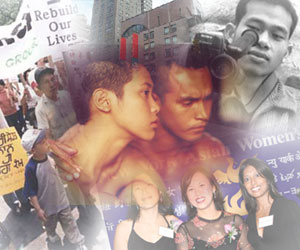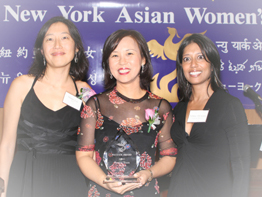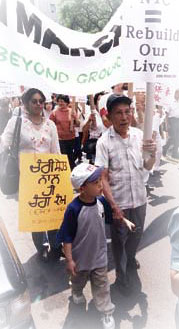15 Great Asian
American Causes
Organizations that use your contributions to benefit Asian America.
by Paget Lin
PAGE 1 OF 5
NYAWC
Restoring Lives of Abused Women
AALDEF
Fighting Suffering Caused by Racial Discrimination
AAAA
Supporting the Asian American Arts
Asia Society
Educating Americans About Asia and Asians
CAAM
Bringing Asian faces into American Media
JANM
Bringing Japanese American History to Life
AADP
Saving Asian Lives one Donor at a Time
AAWW
Giving Asians a Place in the Literary World
Bridge To Asia
Books For Asia's Developing Nations
AADAP
Helping Troubled Teens Survive the American Nightmare
APWC
Restoring Victims of Abuse to Full Lives
Chinatown Committee
Enriching Lives in Boston Chinatown
APIASF
Sending Low-Income Asian American Kids to College
Asian Family Center
Integrating Asian Families into the Portland Community
ACMHS
Helping the Mentally Disabled Maximize Their Potential

15 GREAT ASIAN AMERICAN CAUSES
 ave you ever burned with the passion to fight injustices produced by racial discrimination? Or to eradicate insulting stereotypes that hinder our acceptance in American society? Or to alleviate the suffering of the disadvantaged? We all have.
ave you ever burned with the passion to fight injustices produced by racial discrimination? Or to eradicate insulting stereotypes that hinder our acceptance in American society? Or to alleviate the suffering of the disadvantaged? We all have.
No matter how well-intentioned or energetic, few of us have the resources to take on a cause single-handedly. Is the only alternative apathy? Not according to the activists who have committed their full-time energies to establish organizations that channel good impulses into effective action that help those who need it most.
There are hundreds of worthwhile Asian American causes. We present here ten non-profit organizations that have harnessed the contributions of thousands of concerned Asian Americans to make life better for hundreds of thousands more. We encourage you to find one or two that move you and make a real difference by pitching in.
[CONTINUED BELOW]


